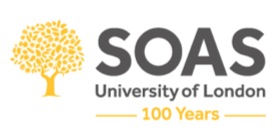AERC–SOAS CALL FOR PAPERS
CORPORATE FINANCE IN AFRICA
Introduction*
Globally, research in corporate finance has grown rapidly in the last 50 years, covering theoretical and empirical work on key areas, including capital structure and firm value (e.g. Fosu, et al., 2016; Antill, et al., 2019), dividend policy (e.g. Manos, et al., 2011), investment decisions under uncertainty (e.g. Lensink and Murinde, 2006), and corporate control (e.g. Aminadav and Papaioannou, 2020).
However, for African economies, theoretical and empirical studies in corporate finance are very scanty. There is urgent need for research on how small and large firms in Africa raise capital, the unique capital structure of these firms, the dividend policy adopted by the firms, the role of uncertainty in investments decisions, and the impact of policy (for example corporate tax policy) on firm financing behaviour, among other interesting corporate finance issues. It may well be the case that corporate finance structures in Africa are conditioned by the business and institutional environment, such as information asymmetry, credit market segmentation and thin stock markets (Ngugi, 2008). Also, some firms may be politically connected (Goldman, et al., 2009); or organised into business groups (Manos, et al., 2011); or constrained by corporate tax policy (see Green and Murinde, 2008).
The call for papers
We invite researchers based at African institutions (e.g. universities, central banks, and think tanks) to submit research papers which aim to make important theoretical or empirical contributions to existing knowledge on corporate finance issues in Africa, with findings that appeal to policy makers, regulators or corporate executives. We welcome papers addressing topics that include, but are not limited to:
Corporation as a nexus of contracts, with stakeholders (e.g. management, government)
Firm investment decisions and value maximization rules
Dividend policy
Debt, taxes, and agency costs
Financial and economic distress: privatization of corporate bankruptcy
Option features of corporate securities: convertible and callable debt; warrants
Corporate control and governance; mergers and acquisitions
Corporate finance and stakeholder perspective – social value creation
International perspectives of corporate finance
Complete papers should be submitted to:
AERC Director of Research at cresearch@aercafrica.org with a copy to dmuchai@aercafrica.org on or before 31 July 2021. The selected papers will be presented at an AERC online conference on 8-9 September 2021.
The subject of your email should read “AERC Call for Papers- Corporate Finance in Africa”.
All applicants will be informed of the outcome of their proposals by 14 August 2021
References and Suggested Readings
Aminadav, G. and Papaioannou, E. (2020). Corporate control around the world. Journal of Finance, 75(3): 1191-1246.
Antill, S., Grenadier, S. R. (2019). Optimal capital structure and bankruptcy choices: Dynamic bargaining versus liquidation. Journal of Financial Economics, 133(1): 198-224.
Fosu, S., Danso, A., Ahmad, W. and Coffie, W. (2016). Information asymmetry, leverage and firm value: Do crisis and growth matter? International Review of Financial Analysis, 46: 140-150.
Goldman, E., Rocholl, J., and So, J. (2009). Do politically connected boards affect firm value? Review of Financial Studies, 22(6): 2331-2360.
Green, C. J. and Murinde, V. (2008). The impact of tax policy on corporate debt in a developing economy: a study of unquoted Indian companies. The European Journal of Finance, 14(7): 583-607.
Lensink, R. and Murinde, V. (2006). The Inverted-U hypothesis for the effect of uncertainty on investment: Evidence from UK firms, The European Journal of Finance, 12(2): 95-105.
Manos, R., Murinde, V. and Green, C.J. (2011). Dividend policy and business groups: Evidence from Indian firms, International Review of Economics & Finance, 21(1): 42-56.
Ngugi, R. (2008). Capital financing behaviour: Evidence from firms listed on the Nairobi Stock Exchange. European Journal of Finance, 14(7), 609-624.
* This call is supported under Component II of ESRC Grant Ref. ES/N013344/2 on ‘Delivering Inclusive Financial Development and Growth’, funded by the FDCO and ESRC, led by Victor Murinde at SOAS University of London and involving the AERC.

